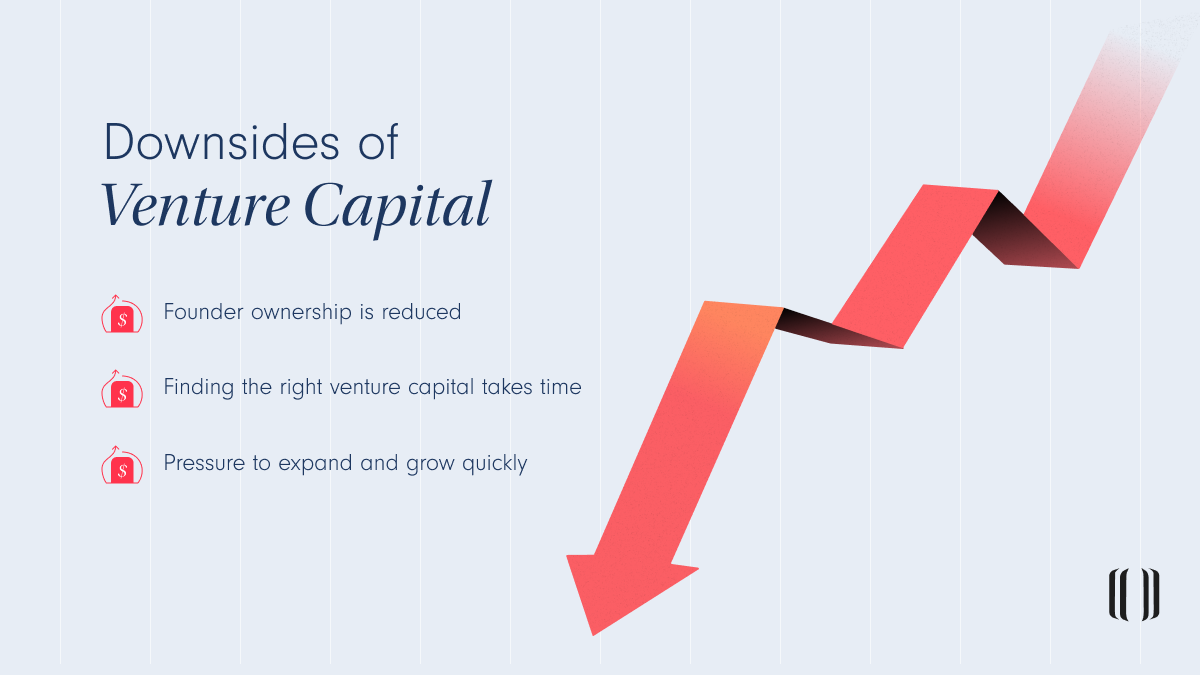Venture capital has some benefits and drawbacks that startups have to be aware of. Although it is a great option for these companies to get funded, it never hurts to have a bit more understanding about how VCs work, what they can offer, and how you can use it to your advantage as a new startup.
One of the essential aspects for startups is having enough funds or cash to maintain operations until the company takes off the ground. However, since startups are defined as businesses with less than ten years under their belt, their cash flow is often limited.
Such a problem may cause a startup to go bankrupt before it ever gets the chance to flourish. Getting funding in the traditional sense, such as a bank loan, is not an option for most as they have no proven track record or an extensive financial history. One of the ways to circumvent this traditional method of obtaining funding is via a venture capitalist (VC).
The Definition of Venture Capital
Startup venture capital consists of seasoned investors and experts, who work individually or through venture capital firms, to back a startup that they think could become the next big thing in the industry. Essentially, they are looking for business plans that have the potential to disrupt the traditional way of doing business.
Take a look at Grab, for example. 15 years ago, the idea of a SuperApp, an all-in-one digital service, ranging from ordering food and taxis to paying bills with the tap of a finger, was unimaginable. With the help of funding from several venture capitalists, Grab took off and is now a cornerstone of the delivery industry in Southeast Asia.
Benefits of Venture Capital
As startups might not have enough experience to navigate or manage the rough waters of the corporate world, the venture capital firm will usually appoint someone with enough experience to guide the running of the business. Aside from getting funding and guidance from a professional, other benefits of venture capital are as follows:

1. Gaining networking opportunities
A great benefit of venture capital is the opportunity to connect with more people that your company wouldn’t normally have access to. Venture capitalists are primarily people who have been in the industry for a long time. This means they are likely to know people who are knowledgeable about your business’s industry, which gives you valuable connections that might be useful down the road.
2. No salary and repayment required
A venture capitalist is likely to ask for shares in the company in exchange for their help and expertise instead of asking for a set amount of money or a repayment scheme for their services. VCs know that when investing in startups, they need to give them time to grow and flourish before any real ROI is visible. This is one benefit of venture capital as it somewhat takes away the pressure to be at the top right from the get-go.
3. Your assets are secure
Another benefit of venture capital is that you get to separate your personal assets from your business. When a business owner secures funding from a venture capitalist, it’s important to note that the owner’s assets remain separate from those of the business.
VCs invest in a company in exchange for equity or a share of ownership in the business. As a result, their investment and involvement are primarily on the growth and success of the company itself rather than on the owner’s assets.
The Downsides of Venture Capital
As mentioned, venture capital has benefits and drawbacks. Even with all the great things startups can get from VCs, there are a few things they would need to take into consideration before committing to one.

1. Founder ownership is reduced
As venture capitalists don’t expect profits immediately, they will ask for a stake in the company for a bigger return when they are successful, whether in the initial public offering (IPO) or buyout stage. Doing so will also diminish your voting rights when making decisions about your company with the board of directors.
2. Finding the right venture capital takes time
Venture capitalists are highly selective; they only choose a company they believe can be successful in the future. Hence, it’s not uncommon for them to do their due diligence and extensive background checks with the help of an analyst to determine your company’s viability for success.
3. Pressure to expand and grow quickly
Investors are keen to see a high return on their investment as quickly as possible, giving you the added pressure to grow rapidly, so your business has what it takes to be listed on the public stock exchange or be acquired/merged with a larger company.
While it’s true that venture capital funding gives several advantages for startups, it also comes with its drawbacks. We hope that this article helps you weigh the pros and cons of venture capital in deciding whether it is the right path for your startup.
Lanturn’s Corporate Services
Are you starting your own company in Singapore? Stay on top of accounting, compliance and investments with Lanturn.
Our in-house team of accountants will streamline your business processes. Moreover, availing of our payroll solutions can greatly free up the time of your HR and accounting staff. We also provide expert tax services to help you stay compliant with ease. Or perhaps are you thinking of changing your company secretary? Consider outsourcing to our corporate secretarial services, our team of experts will assist you from AGM to fundraising journeys. Best of all, transferring to Lanturn is hassle-free.
Contact us now!

